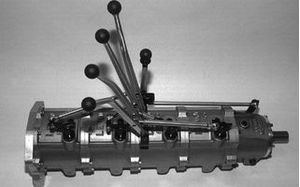GM Looking Into Making Its ECUs More Aftermarket Friendly
In the past, modifying a car was a common thing for automotive engineering enthusiasts. Nowadays, electronic engine management systems significantly simplify the process of enhancing car’s performance capacity – of course if you manage to break the computer code. The thing is that many car manufacturers want to minimize possible interference in the software of their latest models. In this endeavor, we have to mention GM that has been promoting “unhackable” ECUs in some models for some time now.

New mid-engine Corvette, for instance, uses complex ECU Encryption to keep both thieves and tuners away
This technology makes it almost impossible to
carry out any significant tuning changes, but it seems like GM wants to change that.
It is known that the automaker has been considering possible maneuvers “in the
calibration space” for vehicle control devices. The thing is that GM wants to
achieve two quite contradictory goals at the same time: on the one hand, it is
needed to keep safety as the number one priority, but at the same time the
company doesn’t want to disregard preferences of its performance customers.
But why anti-hacking technologies really matter
in the first place? The thing is that wireless know-hows have become
increasingly popular in modern autos, and it is reasonable that car
manufacturers want to shield these systems from hackers who, if they want to,
can give a lot of trouble.
Hacking in to play with your radio station may
be an innocent joke, but with self-driving technologies now integrated in many new
cars, suddenly engaging the brakes or steering can lead to a serious road
traffic accident. But on the other side, placing a higher priority on
cybercrime defenses can also prevent tuners from performing their tricks.
Major car manufacturers are certainly coy on
this specific aspect of ECU programming, but limiting access could also force
power-happy customers to only deal with OEMs on such matters, at the same time
encouraging business partnerships related to programming rights between
aftermarket companies and automakers, and big money could certainly come into
the equation.
It’s good to know that GM is well-aware of concerns of its performance-striving customers and their desire to improve factory vehicles, and there is a chance that GM’s intent to please everyone will take shape in future ECU developments. But at this point, the 2020 Corvette is considered to be unhackable, implying that if you want a C8 with more than 495 hp, you have to deal with the manufacturer directly.








